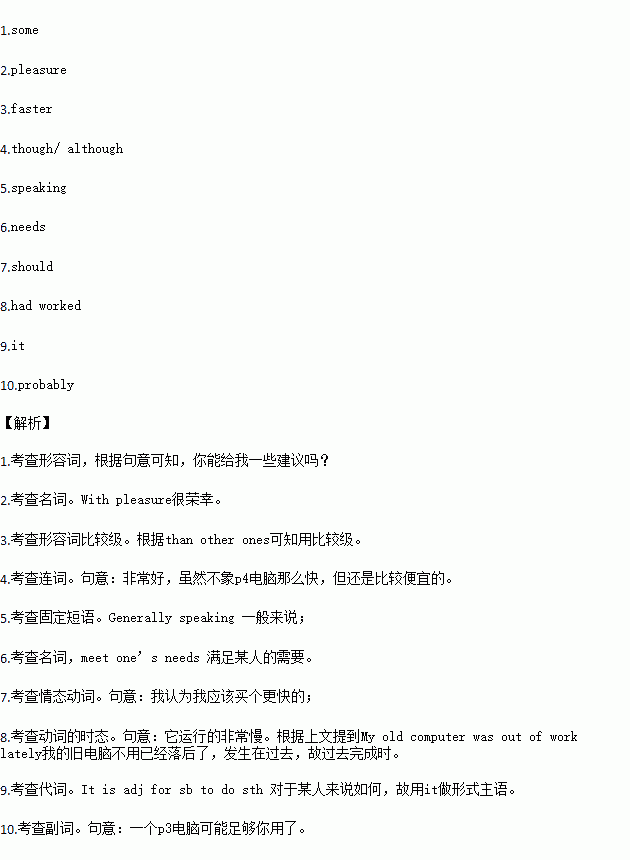题目内容
阅读下面材料,在空白处填入适当的内容(不多于三个单词)或括号内单词的正确形式。
Mike: I’d like to buy a computer. Could you please give me1.advice?
Rose: Yes, with 2.(please). I’ve got some information about computers. Computers with a P4 work much3.(fast) than other ones.
Mike : How about computers with a P3 ?
Rose: Oh, very good,4.they don’t work as fast as P4 computers, yet they are much cheaper. Generally 5.(speak), they can meet people’s 6.very well.
Mike: I think I 7.buy the fastest one I can get. My old computer was out of work lately. It8.(work) slowly. I’ve got tired of that working speed.
Rose: I don’t think 9.is necessary for you to buy the fastest one. It would be a waste of money. A P3 computer is 10.( probable) good enough for you.
Mike: Thank you for your advice. Can you help me choose one?

